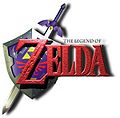| Site Notice |
|---|
|
We have a limited coverage policy. Please check our coverage page to see which articles are allowed. |
Difference between revisions of "The Legend of Zelda series"
| Line 66: | Line 66: | ||
<references/> | <references/> | ||
</div> | </div> | ||
| − | == External | + | == External links == |
| − | + | * {{wp|The Legend of Zelda|StrategyWiki Series category}} | |
<!--* Affiliate Wiki Link, if Any. --> | <!--* Affiliate Wiki Link, if Any. --> | ||
| − | + | * {{sw|Category:The Legend of Zelda|StrategyWiki Series category}} | |
{{DEFAULTSORT:Legend of Zelda, The}} | {{DEFAULTSORT:Legend of Zelda, The}} | ||
{{Zelda series}} | {{Zelda series}} | ||
| − | {{Nintendo | + | {{Nintendo flagship series}} |
| − | |||
[[de:The Legend of Zelda (Spieleserie)]] | [[de:The Legend of Zelda (Spieleserie)]] | ||
Revision as of 20:46, 3 November 2011
| This article is a short summary of The Legend of Zelda series. Zelda Wiki features a more in-depth article. |
| The Legend of Zelda | ||||||||||||||||
| ゼルダの伝説 | ||||||||||||||||
|
| ||||||||||||||||
| ||||||||||||||||
The Legend of Zelda (Japanese: ゼルダの伝説 Zelda no Densetsu) is a Nintendo franchise that debuted with a title on the Nintendo Entertainment System in 1986 (Japan release) and 1987 for American and European gamers. Nintendo has managed to release a title of the series for each handheld and console system, except the short-lived Virtual Boy.
Titles in the series typically follow the adventures of a young man named Link as he journeys throughout a land (often Hyrule), battling monsters to ultimately save the captive Princess Zelda, who is often being held by the wicked Ganondorf. Retellings, often with artistic liberties, of the games' plots are available through several paperback novels and mangas. Original stories can also be found as paperback novels.
Developers
Shigeru Miyamoto is known to be the primary creator of the series and its characters. He has said that he was inspired by the Lord of the Rings saga and his own exploration of caves near his childhood home. Eiji Aonuma has taken lead development roles on each game since Majora's Mask, with Miyamoto watching over the games' development to see how it goes.
Capcom and Flagship, two third-party developers, are responsible for the games which appeared on the Game Boy Color and Game Boy Advance, while Nintendo of America is typically credited with creating the pseudo-minigame Link's Crossbow Training.
Three games released for the Philips CD-i were created and released by Animation Magic due to a broken deal with Philips to produce a CD-based addon to the SNES. These games are considered by most fans to not be canon, though many find the poorly-animated cutscenes to be the source of many laughs in remixes posted on YouTube.
Games
Related Imagery
References
External links
|
|







